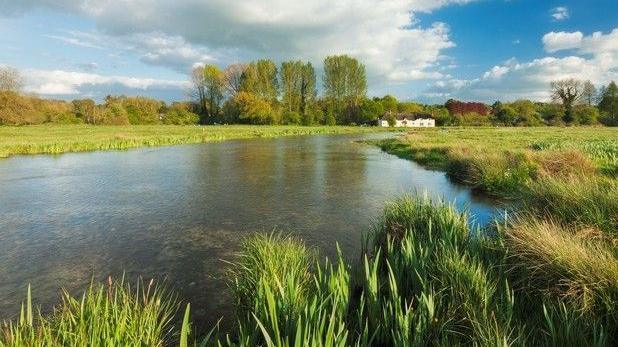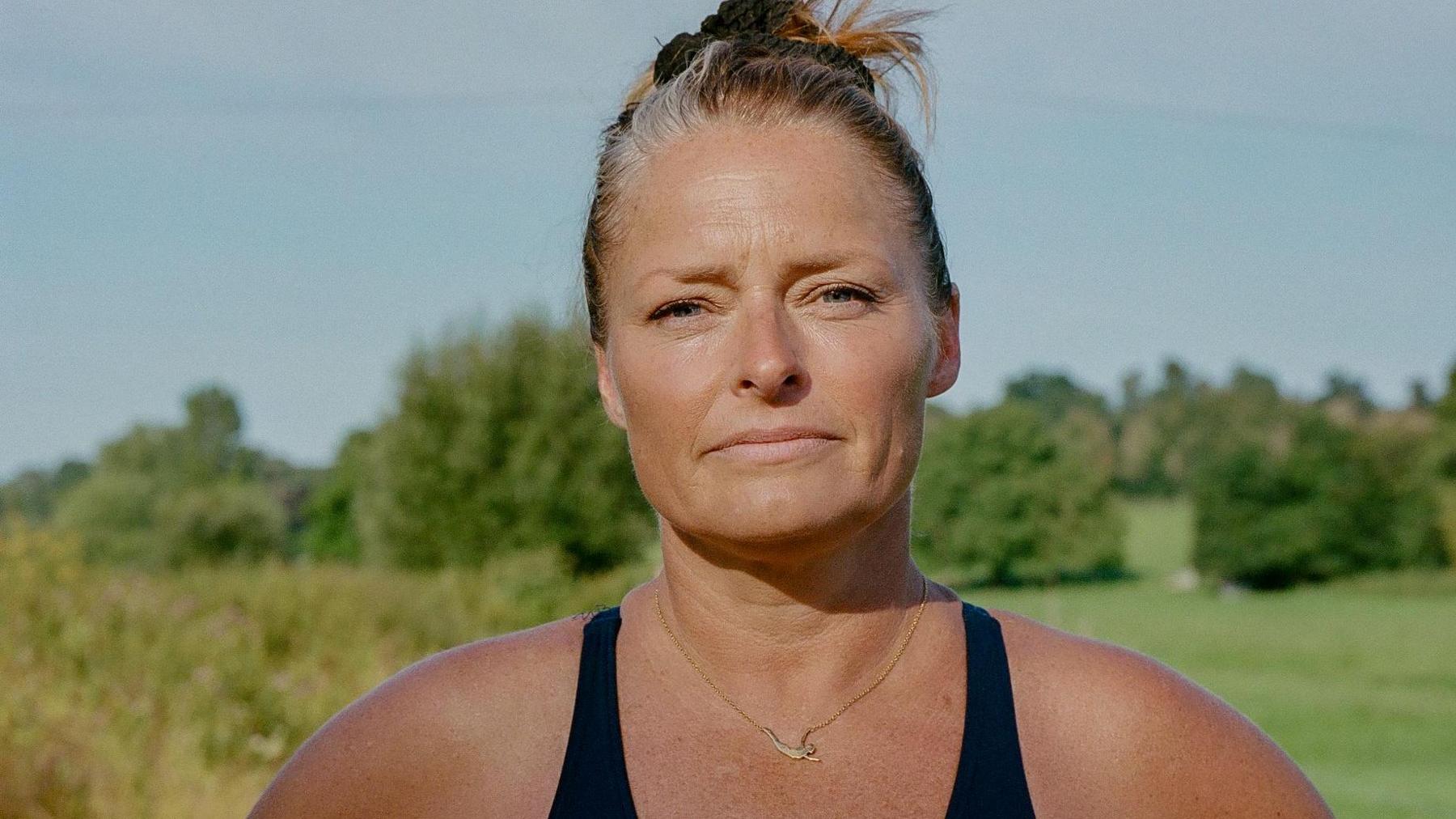Rights of rivers recognised in council votes

The River Test has the right to be free from pollution, a council declared
- Published
Two councils have passed motions which recognise the rights of rivers to be free from pollution and poor condition.
Southampton City Council and Test Valley Borough Council are the latest authorities to declare that waterways have rights akin to individuals.
The votes are an effort to strengthen protections, Hampshire and Isle of Wight Wildlife Trust said.
However, lawyers have said it is unclear what legal effect the moves could have.
Test Valley Borough Council, which is named after a river which flows through Hampshire from Overton to Southampton, acknowledged the "intrinsic rights" of waterways on 23 July.
Councillor Geoff Cooper, a Liberal Democrat, said his motion gave a "practical framework" for decisions on planning, land use and water management.
He said: "Unfortunately just being a Site of Special Scientific Interest doesn't necessarily protect the rivers from overdevelopment, from sewage dumping, from run-off from roads and agriculture.
"Because the national government is not doing enough, local authorities... are taking matters into their own hands and seeking ways to protect our natural resource."
On 16 July, Southampton City Council, which helps to manage the Test and Itchen rivers, passed a near-identical resolution.
Lewes District Council and Basingstoke and Deane Borough Council have also previously acknowledged river rights.
Lawyers at Hogan Lovells, who worked on the Lewes declaration, said it was a "step forward" in protection.
However, they wrote, external: "Rivers and nature do not have legal personhood in England, or the corresponding right to sue and be sued in their own right."
The wildlife trust said the votes "reflect a growing recognition that our rivers, and particularly our rare chalk streams, deserve stringent legal recognition and protection".
Southern Water, which recently applied to increase the amount of water it can take from the Test, external in an emergency, said its long-term aim was to reduce abstraction through schemes including a new reservoir.
It said it was already spending millions of pounds in the Test catchment on upgrading infrastructure and improving the river's health.
The Department for Environment, Food & Rural Affairs added: "The government has put down the building blocks to clean up England's rivers.
"We are rebuilding the water network in one of the largest infrastructure projects in this country's history, with a record £104bn investment to upgrade crumbling pipes and cut sewage spills in half by 2030.
"We will go further by creating a new, powerful water regulator responsible for the entire water sector – abolishing Ofwat and bringing together the water functions from four different regulators into one."
Get in touch
Do you have a story BBC Hampshire & Isle of Wight should cover?
You can follow BBC Hampshire & Isle of Wight on Facebook, external, X, external, or Instagram, external.
See also
- Published2 May

- Published9 February 2024

- Published15 March 2017
